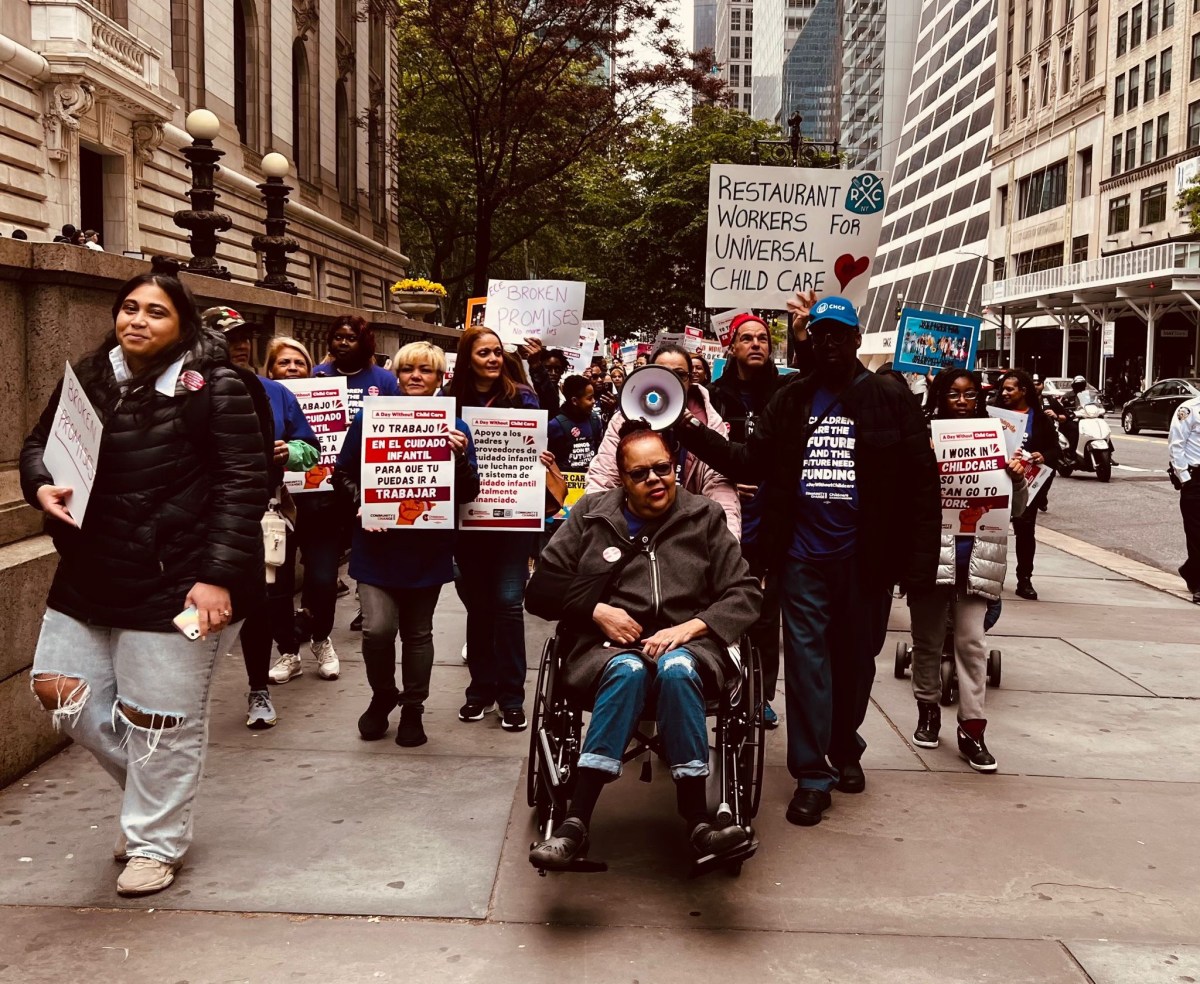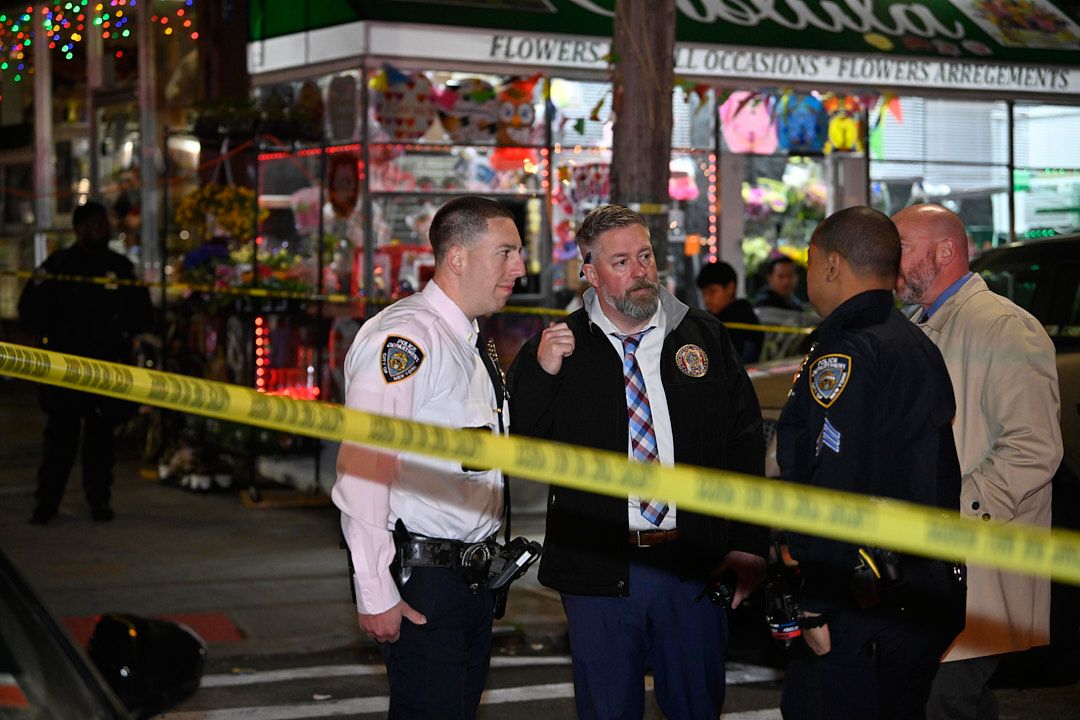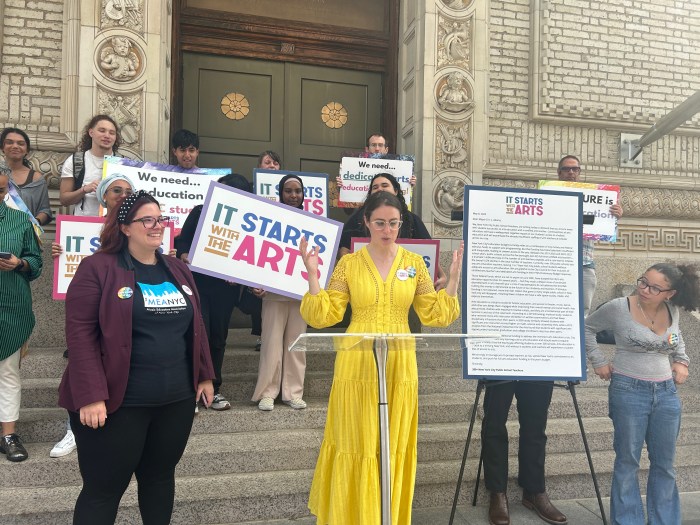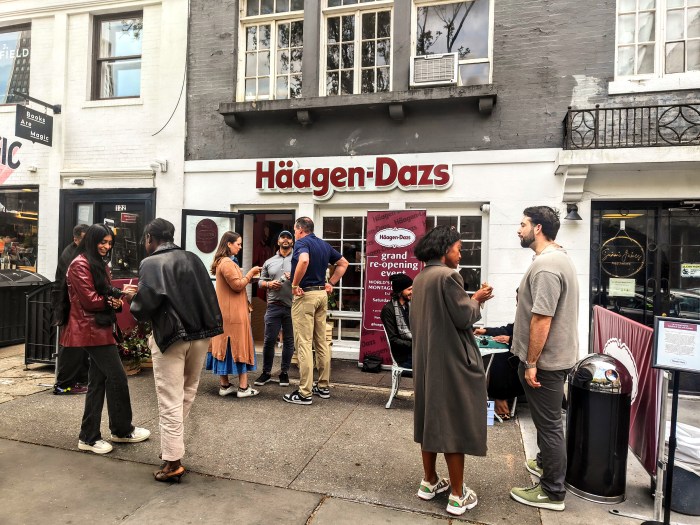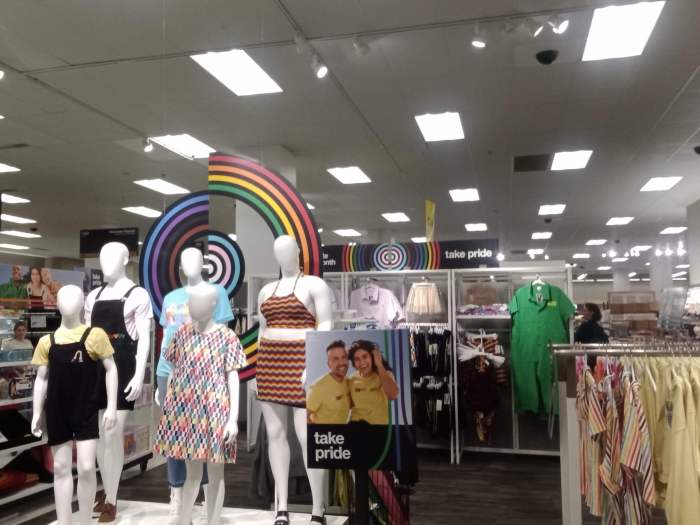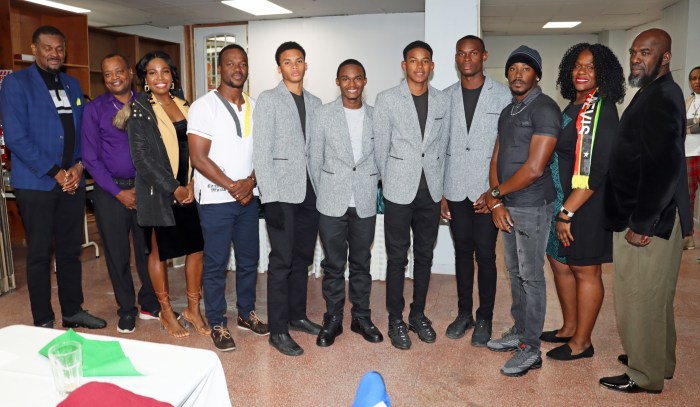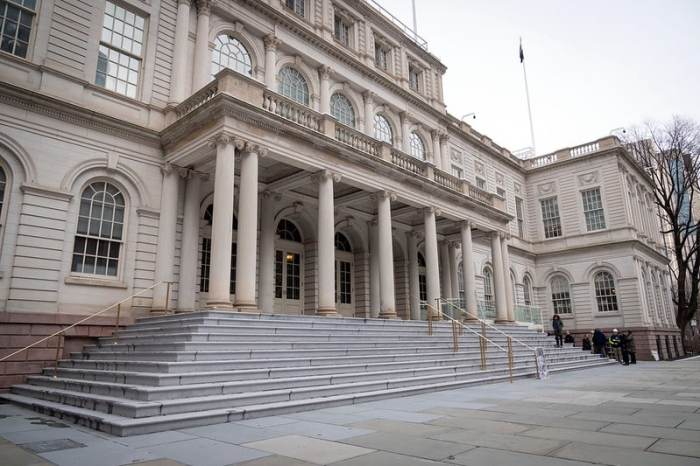If you’re a woman walking down the street
in Brooklyn, it’s likely you have been or will be on the receiving
end of catcalls, men shouting remarks about the way you look.
While some of these comments may sound complimentary or possibly
one-liners for the amusement of other men standing around in
a group, men and women don’t take away the same meanings from
these interactions.
In fact, most women feel threatened.
That was the case for Jenga Mwendo as she walked through Crown
Heights to Bedford-Stuyvesant last July. The experience was so
harrowing for Mwendo that she fired off an angry e-mail to her
colleagues at Red Clay Arts, a Clinton Hill non-profit arts organization,
with this suggestion: "We could open an exhibit where a
man could walk through alone, and hear [catcalls] while the eyes
of men leer at [him] from the walls."
At BRIC Studio in February, the "Red Clay Arts In Studio
Series: Practicum" unveiled "Cat Calls," a multimedia
installation exploring the what, where, when and whys of catcalls
– an answer to Mwendo’s e-mail. The event was so successful that
plans are now in the works for an expanded version of the show,
which includes an art installation, poetry, theater, school programs
and dance, which will go on tour next year.
In the meantime, Brooklynites can feast their eyes and ears on
the latest version of "Cat Calls" at Smack Mellon Studios
in DUMBO on July 27.
Curated by Mwendo, the exhibit "examines the phenomenon
as a living environment, seeking to gauge its effects on women
and young girls and to expose men to catcalling from a female
perspective."
The exhibit includes a "Walk of Shame," a type of hallway
with projected images of leering men who stare, lick their lips
and mouth profanities as the viewer walks through.
"Empathy isn’t something you can learn by reading,"
said Mwendo. "You have to experience it."
The "Talking Heads Panel Discussion" is a series of
pre-recorded interviews edited to simulate an actual live discussion,
represented by a five-monitor display. The panelists – men, women
and teens from the Lower East Side Girls Club – discuss why men
catcall and how it affects women.
There is also a new dance work, "Women Navigating Through
Space" by Kwame Ross, the founder and artistic director
of Prophecy Dance Theater and associate artistic director of
Urban Bush Women. Ross’ work details a woman’s journey through
her daily life.
In addition, performance artist Liza Jesse Peterson will read
her provocative "Ice Cream" poem live, and actors will
perform a humorous skit recreating various catcalling scenarios
written and directed by Aminisha Ferdinand. The skit incorporates
her first-hand experience with daily catcalls on the streets
of New York.
"We jotted down a list of scenarios – catcalls from across
the street or from a car or walking past a group of men – and
we gave those to Aminisha," said Mwendo. "She took
them to the next level. It’s hilarious. When you take something
so seriously, you see how idiotic it really is – that was [Executive
Director] Elissa Blount’s idea."
Mwendo explained that the exhibit is "unconventional"
in its subject matter as well as its setup. There are no chairs
in the Smack Mellon space. The exhibit is open to be explored
and the dance, DJ b. rett’s spinning and theater piece will happen
when they happen – spontaneous happenings.
Blount explained that her organization’s "whole mission
is to expose vanguard art and art on the cutting edge. We’re
particularly focused on new media and visual arts. We give a
platform to stuff that is not represented in mainstream places
like a museum. It’s work that is usually marginalized.
"’Cat Calls’ is a perfect expression of that kind of art,"
said Blount. "You don’t think of an everyday experience
in an artistic context." She explained that when Red Clay
first unveiled "Cat Calls" in February, they didn’t
have plans – artistically or financially – to expand it into
a large, traveling exhibition. Now the organization has to raise
considerable additional funds to expand the show and to take
it to a wider audience.
"A lot of the element is technology driven," said Mwendo.
"We need up-to-date computer and video equipment and video
editing services. It’s a pricey exhibition."
But that won’t slow Red Clay’s mission to bring the show to new
locations. Next year, "Cat Calls" will travel to the
Ashe Contemporary Arts Center in New Orleans.
"Jenga was able to tap into something every human has experienced
on one level or another – or at least witnessed," said Blount.
"We’re kind of reacting to the success of the show. We’re
making that the centerpiece for next year."
In brainstorming ideas for outreach components of the show, the
curators had business cards printed, "so whenever [a woman]
is catcalled, she can give the man a card," said Mwendo.
"And the phone number on the card is the number at Red Clay
Arts that will explain: if you got this card, you did one of
three things The voicemail will be ready by July 27th."
Another new outreach component was an online survey and questionnaire.
Mwendo said they would post the results at the show "in
a creative way."
The doors open at 6 pm, with a screening of Maggie Hadleigh-West’s
1998 documentary "War Zone." Hadleigh-West was grappling
with catcalls for seven years, and her answer was to turn her
camera on the men who were harassing her. Her film about "street
abuse" premiered at the Berlin International Film Festival
and had a run at Film Forum in Manhattan.
Because of these varied elements of the show, including school
outreach and the "conscious effort to not be heavy-handed
and preachy," Blount said she hopes the show "will
spark communication among the genders. It’s almost sociological
the impact it could have."
Even a simple list hung on a wall proved to be an eye-opener.
"One of the elements of the February show was a log,"
said Mwendo. "During one week, I wrote where, when and what
catcalls were said to me. It was posted on the wall – this long,
long list. Women know, but during the Q&A, a man stood up
and said, ’I didn’t understand the volume.’
"One of the men who stood up brought up that he gained a
sense of responsibility – he should tell other men why it’s wrong,
why they shouldn’t treat women that way or why it’s disrespectful.
They think they’re telling you that you have a nice ass and you
should be happy.
"But how are we supposed to know who’s a nice guy and who’s
going to rape me?" asked Mwendo. "These are complete
strangers. There is a threat of violence that underlies these
random street interactions."
"Cat Calls" is a response to the angry, exasperated
e-mail Mwendo sent to her colleagues a year ago. Underlying the
show’s components are a bill of rights – a challenge to the exhibit
visitors and society at large – which she set forth in her e-mail.
"I would like to give and receive respect from all men,
regardless of their age or looks or marital status," wrote
Mwendo. "I would like to feel safe no matter what time of
day I walk in the street. I would like my sex not to be a danger
to me. I would like men to stop acting as though they cannot
control themselves, to stop blaming women for turning them on."
Red Clay Arts’ "Cat Calls"
will be presented July 27 at 6 pm at Smack Mellon Studios, 56
Water St. between Main and Dock streets in DUMBO. Installations
will remain on view until Sunday, July 28. For directions, visit
www.smackmellon.org
on the Web. Admission is free. For more information, call Red
Clay Arts at (718) 398-1500.








